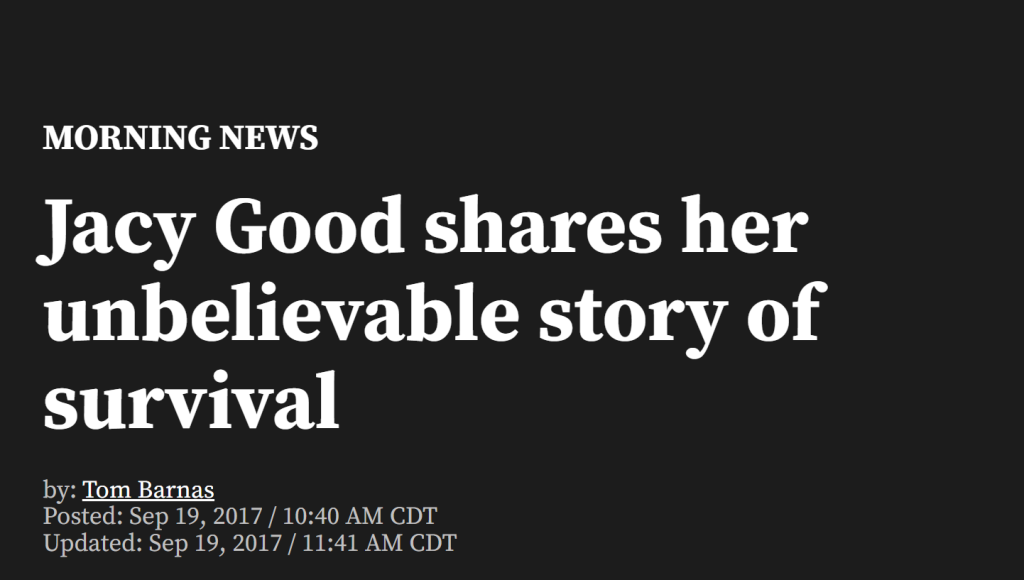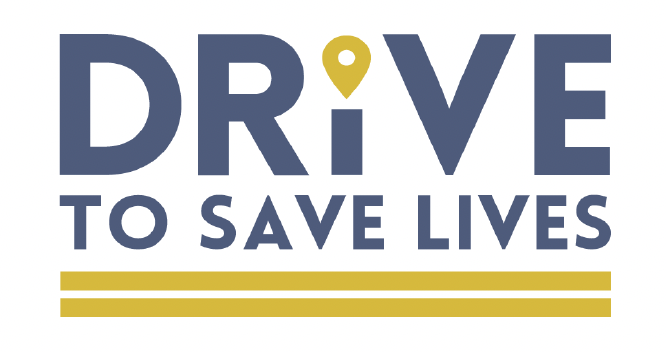Leaving for home on May 18, 2008, after my graduation from Muhlenberg College, with my parents and a car full of everything I owned, was one of the better feelings of my life.
Jacy Good with her parents and brother on the day she graduated from Muhlenberg College in 2008.
I had a dream job lined up with Habitat for Humanity. My longtime college boyfriend, Steve, was going to live with his parents for a year to save money. Then we’d move in together, knowing at some point a proposal, a wedding, children and a whole wonderful life would unfold for us. My parents had never been so proud of me. That usual 90-minute trip home ended up taking months.
The last thing I remember is stopping for gas and coffee about 10 minutes before the crash. I was later told a teenager, driving and talking on his cellphone, turned left through a red light, causing a fully loaded tractor-trailer to swerve and hit our station wagon head-on.
My parents were pronounced dead at the scene. An off-duty paramedic who lived nearby rushed to the intersection after hearing the collision and miraculously saved me.
The next two months are essentially nonexistent in my memory.
I had broken bones, lacerations and internal injuries from my head down to my toes. Most critically, I had a traumatic brain injury which left my chances of survival at a paltry 10%.
Good at the Reading Hospital in Pennsylvania after the car accident.
After waking from my induced coma a week after the crash, I was hardly responsive. Slowly, I began to follow simple commands, like giving a thumbs up. I’m told it was nearly a month before I said anything and several more weeks before I started to make any sense.
My first solid memory is from July 7, when I was transported to a rehab hospital. Four days later was my 22nd birthday. I was confused because my parents didn’t come to celebrate with me. I’d been told dozens of times what had happened to them, but the loss of my parents didn’t stick in my head. Sometimes I wonder if that was a subconscious defense mechanism.
Steve spent nearly every waking hour by my side, yet it wasn’t until about three months after the accident that I finally realized who he was. I had been sure he was my brother Jared, even though Steve is about 6 inches shorter and 100 pounds lighter. Never underestimate the power of an injured brain to confuse the obvious!
Good and Steve Johnson outside a rehabilitation facility.
In rehab I had to relearn how to feed and dress myself, how to read and speak. I was starting over. I gradually worked my way from kindergarten worksheets upward as my brain began to rewire and come back to me.
By September 19, my last day of inpatient rehab, I had just taken my first steps since graduation day. In the following years of outpatient and private therapy, I progressed from a wheelchair to a cane to an ankle brace that I still wear.
Time, impeccable medical care and a junk drawer’s worth of plates, rods and screws helped heal everything that could be fixed, but my brain injury is permanent. It’s left me without a functioning left arm or a fully capable left leg. My memory isn’t exactly stellar and I seldom get restful sleep. Certain cognitive tasks are significantly more taxing than they’d been before. Given today’s medical science, there’s not much more that can be achieved.
Getting to where I am today has been one hell of a journey and I am so thankful to be able to live an almost completely independent life.
If you’re wondering, that proposal and wedding I dreamed about came true, though I had no mom to go dress shopping with or dad to walk me down the aisle.
Good and Johnson tied the knot October 12, 2013.
When Steve and I talk about children, the discussion always begins with how important finding handicap-friendly housing will be so that I’ll be “safe” with our babies. I also know I’ll never be able to chase my boys around or braid my daughters’ hair.
Steve and I have a wonderful life as public speakers, but we’d trade it in a second to just go back to “normal.”
I live in a new normal now.
I’m one of the estimated half a million injuries each year in this country caused by phone use behind the wheel. My parents were two of the 5,870 American distracted driving fatalities in 2008
Maybe it’s time for a change because while my wreck might be just another set of numbers in some ledger, I sure don’t feel like a statistic. I feel like a person whose life was permanently damaged by someone else’s bad and preventable decision.
I wonder how other statistics feel?
Hang up and drive.
Hang Up and Drive: The Jacy Good Story

